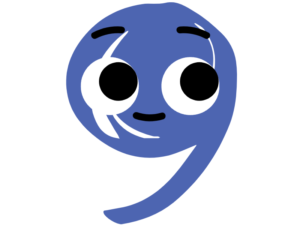
How do you even begin to write the card? Happy Mother’s Day? Or is it Mothers’ Day? Maybe it’s Mothers Day. Where does the apostrophe go? Do you need one? Is it correct to capitalise those words? I’ll try to unscramble the grammar of the day’s title: what you write to your mother after that is up to you.
Apostrophe or no apostrophe?
It’s a tricky little punctuation mark, the apostrophe. Does it have a place here? Grammatically, you could argue for both being correct:
-
- If you consider the day to belong to your mother, your mothers, or to all mothers, then it would be grammatically correct to use an apostrophe to show possession. After all, if it were her birthday, you’d write ‘Mum’s birthday’ on the calendar.
- If you consider that Mothers simply describes what type of day it is, then it would be grammatically correct to omit the apostrophe. In this case, Mothers acts as an attributive adjective (an adjective that goes before the noun it describes). If your mum is a fan of the Beatles, then she would be a Beatles fan, not a Beatles’ fan.
Single possession or plural possession?
If there’s to be an apostrophe, do you follow that with an s or not? Again, grammatically, you could argue for them both being correct:
-
- If it’s the day you celebrate your mother, and if you have only one (or you have more but they’re getting a card each), then you could argue that single possession is appropriate and write ‘Mother’s Day’.
- If it’s the day you celebrate all mothers, or if you have more than one, then you could argue that plural possession is appropriate and write ‘Mothers’ Day’.
Capitalised or lowercase?
Here, it’s a bit simpler. Both parts form the name of the special day, and so both parts are capitalised.
If, however, you were talking about another day when you treated your mum, then you would certainly lowercase day. Whether you lowercase mother as well would depend upon whether that is being used as a proper noun or a common noun:
Common noun: Tomorrow’s your mother’s day, so it’s up to her what we do.
Proper noun: It’s Mother’s birthday. So, as it’s Mother’s day, we’ll do what she wants.
Is there a definitive answer?
It’s all very well knowing that you could argue your case whichever option you choose, but you’d probably rather avoid a debate on the subject.
Trying to find consistency with other celebrated days in the calendar doesn’t help much:
-
- We give saints’ days apostrophes. And you can easily see if there’s just one being celebrated – St Valentine’s Day, St David’s Day, St George’s Day, etc. – or more than one – All Saints’ Day
- The US has a holiday to honour all military veterans, but treats Veterans as an attributive adjective – Veterans Day, as first proclaimed by President Dwight D. Eisenhower
If you’re in the UK, you could swerve the issue and write ‘Mothering Sunday’. This is the correct title of the festival observed on the fourth Sunday in Lent. The day is traditionally about returning to your mother church but is now widely used to honour mothers.
Having a special day to honour mothers originated the US, where it is celebrated on the second Sunday in May. It was founded by the remarkable Anna Jarvis. Her motto for the day was:
“For the Best Mother who Ever Lived—Your Mother.”
From that, it’s clear that it was conceived as a day to celebrate your own mother, rather than mothers in general. Indeed, the proclamation by President Woodrow Wilson in 1914 uses single possession – Mother’s Day.
Conclusion
Armed with this information, you can fend off just about any punctuation choice in your greeting for this special day – provided you capitalise both words. But you can’t go wrong with:
-
- Mothering Sunday: if you’re celebrating the UK church festival
- Mother’s Day: if you’re honouring your mum
Now you’re all set for the day set aside for honouring your mother. When it comes to the equivalent day for your father – which has the same date in the US and the UK, the third Sunday in June – you can apply the same reasoning. Just don’t call it ‘Fathering Day’ – that might give entirely the wrong idea!
As you’ll have seen, there’s a lot more to English punctuation than a single, simple rule to follow. You shouldn’t face criticism for how you’ve punctuated a greetings card (which is ‘greeting card’ in US English, just to add to the mix), but in other forms of writing, it will make a difference.
Whatever you’re writing, try not to get too hung up on small details, at least in the first draft. Get your ideas down and check the punctuation later or let someone do that for you. A professional editor or proofreader will not judge you for mistakes – we all make them. If you would like me to help you to present the best version of your writing, please get in touch here.
Hypertext links to other websites are for the convenience of users only and do not constitute any endorsement or authorisation by me.



